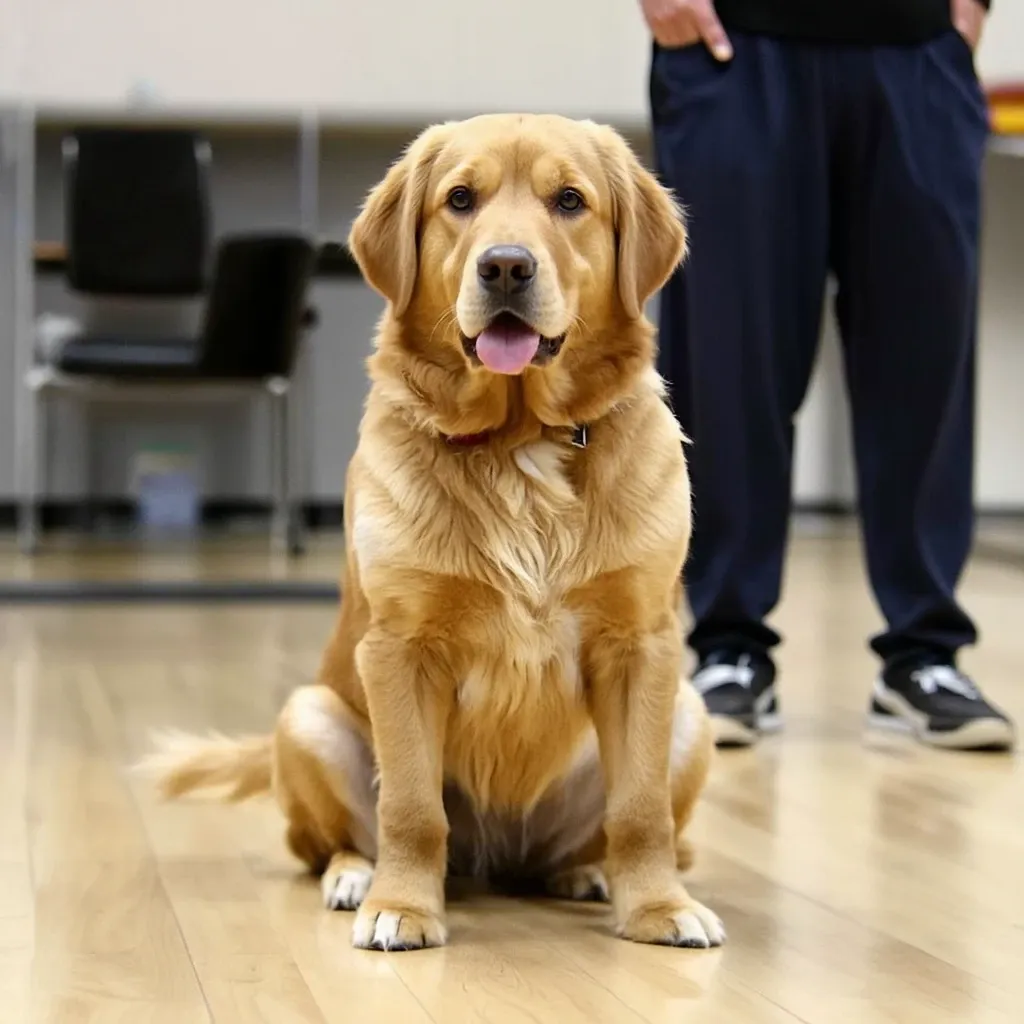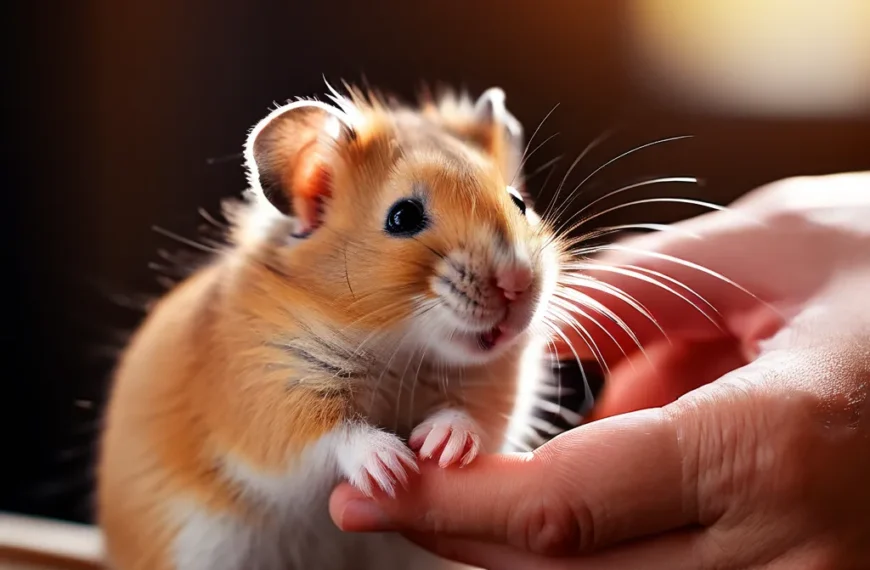Introduction
Are you looking for a furry companion that is not only loving but also well-behaved? With so many dog breeds out there, it can be overwhelming to choose the right one. But what makes a dog breed well-behaved, anyway? Is it their trainability, obedience, or temperament? In this article, we will explore the factors that contribute to a dog’s behavior and help you find the best behaved dog breed for you and your family.

A well-behaved dog is not only a joy to be around, but it’s also a reflection of responsible dog ownership. With the right training, socialization, and care, any dog can become a well-behaved companion. But some breeds are naturally more inclined to good behavior than others.
In this article, we will delve into the world of dog behavior and explore the characteristics of the best behaved dog breeds. We will discuss the role of trainability, obedience, and temperament in a dog’s behavior, as well as how owners and environment shape a dog’s behavior. Whether you’re a first-time dog owner or a seasoned pro, this article will provide you with valuable insights into finding the perfect furry companion for you.
What Makes a Dog Breed Well-Behaved?
A well-behaved dog breed is one that exhibits good manners, is easy to train, and has a pleasant temperament. Several factors contribute to a dog breed’s behavior, including its genetic predisposition, training, and environment.
Genetics and Temperament
A dog’s breed can influence its behavior, as different breeds were developed for specific purposes, such as herding, hunting, or companionship. Some breeds are naturally more energetic, while others are more laid-back. Understanding a breed’s original purpose and temperament can help you determine whether it’s a good fit for your lifestyle.
Trainability
Trainability is a crucial aspect of a dog’s behavior. Some breeds are highly trainable, while others can be more stubborn. Breeds that are highly trainable tend to be more responsive to commands and are often used as service dogs, search and rescue dogs, or therapy dogs.
Environment and Socialization
A dog’s environment and socialization also play a significant role in shaping its behavior. Dogs that are exposed to various environments, people, and situations from an early age tend to be more confident and well-adjusted. Proper socialization can help prevent behavioral problems, such as fear aggression or anxiety.
Owner Influence
An owner’s behavior and training methods can also impact a dog’s behavior. Positive reinforcement training, consistency, and patience can help shape a dog’s behavior, while negative reinforcement or punishment can lead to behavioral problems.
The Role of Trainability, Obedience, and Temperament in a Dog’s Behavior
When it comes to a dog’s behavior, three key factors play a crucial role: trainability, obedience, and temperament. These elements are interconnected and can significantly impact a dog’s overall behavior and relationship with its owner.
Trainability
Trainability refers to a dog’s ability to learn and respond to commands, instructions, and tasks. A dog that is highly trainable is more likely to be well-behaved, as it can understand and follow rules and commands. Trainability is influenced by a dog’s breed, intelligence, and individual personality.
Some dog breeds are naturally more trainable than others. For example, breeds like Golden Retrievers, Poodles, and German Shepherds are known for their high intelligence and trainability. However, every dog is an individual, and trainability can vary within breeds.
Obedience
Obedience is closely related to trainability, as it refers to a dog’s willingness to follow commands and instructions. A dog that is obedient is more likely to be well-behaved, as it will listen to its owner and respond accordingly.
Obedience is not just about following commands; it’s also about a dog’s willingness to please its owner and respond to their needs. A dog that is obedient is more likely to form a strong bond with its owner, as it will be more responsive to their needs and commands.
Temperament
Temperament refers to a dog’s personality and emotional makeup. A dog’s temperament can significantly impact its behavior, as it influences how it interacts with its environment, people, and other animals.
A dog with a good temperament is more likely to be well-behaved, as it will be more even-tempered and less prone to anxiety or aggression. Temperament is influenced by a dog’s breed, genetics, and individual personality.
The Interplay Between Trainability, Obedience, and Temperament
Trainability, obedience, and temperament are interconnected and can impact each other. For example, a dog that is highly trainable is more likely to be obedient, as it can understand and respond to commands. A dog with a good temperament is more likely to be trainable, as it will be more receptive to learning and less prone to anxiety or aggression.
In conclusion, trainability, obedience, and temperament play a crucial role in a dog’s behavior. By understanding these factors, owners can better understand their dog’s behavior and develop strategies to improve their relationship and overall behavior.

How Owners and Environment Shape a Dog’s Behavior
A dog’s behavior is shaped by a combination of genetic and environmental factors. While breed characteristics and temperament play a significant role, the owner’s behavior and the environment in which the dog lives also have a profound impact on its behavior.
The Role of Owners in Shaping a Dog’s Behavior
Owners can shape their dog’s behavior through various means, including:
- Training: Consistent training and positive reinforcement can help shape a dog’s behavior and teach it to obey commands.
- Socialization: Socializing a dog with people, other animals, and new environments can help it become confident and calm in new situations.
- Exercise and Stimulation: Providing a dog with adequate exercise and mental stimulation can help reduce stress and anxiety, leading to better behavior.
The Impact of Environment on a Dog’s Behavior
A dog’s environment can also have a significant impact on its behavior. For example:
- Living Space: A dog’s living space can affect its behavior, with cramped or cluttered spaces potentially leading to anxiety and stress.
- Noise Levels: High noise levels can cause stress and anxiety in dogs, leading to behavioral problems.
- Access to Outdoor Spaces: Access to outdoor spaces and regular walks can help reduce stress and improve behavior.
The Interplay Between Owners and Environment
The interplay between owners and environment is crucial in shaping a dog’s behavior. For example:
- Consistency: Consistency between owners and environment is key to shaping a dog’s behavior. Inconsistent rules and boundaries can lead to confusion and behavioral problems.
- Positive Reinforcement: Positive reinforcement from owners, combined with a supportive environment, can help shape a dog’s behavior and encourage good habits.

In conclusion, a dog’s behavior is shaped by a combination of genetic and environmental factors, including the owner’s behavior and the environment in which the dog lives. By understanding the interplay between these factors, owners can take steps to shape their dog’s behavior and encourage good habits.
Ideal Breeds for Different Lifestyles
When it comes to choosing the perfect furry companion, it’s essential to consider your lifestyle and how it will impact your dog’s behavior and well-being. Different breeds thrive in various environments, and some are better suited for specific living situations. Here are some ideal breeds for different lifestyles:
For Apartment Dwellers
- Bichon Frise: Playful, gentle, and adaptable, Bichon Frises are perfect for apartment living due to their small size and low-shedding coat.
- Cavalier King Charles Spaniel: Friendly, gentle, and relatively low-maintenance, Cavalier King Charles Spaniels are great for apartment dwellers who want a companion that is easy to care for.
- Shih Tzu: Outgoing, loyal, and friendly, Shih Tzus are well-suited for apartment living due to their small size and minimal exercise needs.
For Families with Small Children
- Labrador Retriever: Friendly, patient, and energetic, Labradors are one of the most popular family dog breeds. They are great with small children and are relatively easy to train.
- Golden Retriever: Similar to Labradors, Golden Retrievers are friendly, loyal, and patient, making them an excellent choice for families with small children.
- Beagle: Happy, curious, and energetic, Beagles are great with small children and are relatively low-maintenance.
For Active Owners
- Australian Shepherd: Intelligent, energetic, and loyal, Australian Shepherds are perfect for active owners who enjoy outdoor activities such as hiking and running.
- Border Collie: Highly intelligent, energetic, and focused, Border Collies are ideal for active owners who enjoy dog sports and activities.
- German Shepherd: Confident, loyal, and energetic, German Shepherds are great for active owners who enjoy outdoor activities and training.
For Seniors or Those with Limited Mobility
- Poodle: Intelligent, loyal, and low-shedding, Poodles are perfect for seniors or those with limited mobility due to their low-maintenance coat and relatively small size.
- Shih Tzu: Friendly, outgoing, and loyal, Shih Tzus are well-suited for seniors or those with limited mobility due to their small size and minimal exercise needs.
- Cavalier King Charles Spaniel: Gentle, friendly, and relatively low-maintenance, Cavalier King Charles Spaniels are great for seniors or those with limited mobility.
Remember, every dog is an individual, and while breed tendencies may be a good indicator of a dog’s behavior, it’s essential to spend time with a potential new pet to ensure compatibility.
The Top Best-Behaved Dog Breeds and Their Characteristics
When it comes to well-behaved dog breeds, there are several factors to consider. As we’ve discussed earlier, trainability, obedience, and temperament play a significant role in a dog’s behavior. Based on these characteristics, here are some of the top best-behaved dog breeds:
1. Golden Retriever
The Golden Retriever is known for its friendly, gentle, and intelligent nature. They are easy to train and are often used as therapy dogs, search and rescue dogs, and service dogs.
2. Labrador Retriever
The Labrador Retriever is another popular breed that is highly trainable and obedient. They are friendly, outgoing, and love to please their owners, making them a great breed for families.
3. Poodle
Poodles are highly intelligent and easy to train, making them a popular choice for obedience competitions. They are also known for their low-shedding coat, making them a great choice for people with allergies.
4. Border Collie
The Border Collie is a highly intelligent breed that is known for its obedience and trainability. They are often used as working dogs on farms and ranches, but also make great family pets.
5. Doberman Pinscher
The Doberman Pinscher is a loyal and intelligent breed that is highly trainable. They are often used as guard dogs, but also make great family pets for active families.
6. Shetland Sheepdog
The Shetland Sheepdog, also known as the Sheltie, is a small but intelligent breed that is highly trainable. They are loyal and loving, making them a great choice for families.
7. Rottweiler
The Rottweiler is a powerful breed that is often misunderstood. They are loyal and loving, but also highly trainable and obedient.
8. Australian Shepherd
The Australian Shepherd is a highly intelligent breed that is known for its obedience and trainability. They are often used as working dogs on farms and ranches, but also make great family pets.
9. Papillon
The Papillon is a small but intelligent breed that is highly trainable. They are friendly and outgoing, making them a great choice for families.
10. German Shepherd
The German Shepherd is a highly intelligent breed that is known for its obedience and trainability. They are often used as police dogs, search and rescue dogs, and guide dogs.
These breeds are not only well-behaved but also make great companions for active families. Remember, every dog is an individual, so it’s essential to spend time with a potential new pet before making a decision.

Conclusion
In conclusion, finding the best-behaved dog breed is a multifaceted process that involves understanding the role of trainability, obedience, and temperament in a dog’s behavior. It’s also crucial to consider how owners and environment shape a dog’s behavior, as well as the ideal breeds for different lifestyles.
By considering these factors, you can make an informed decision when choosing a dog breed that suits your needs and lifestyle. Whether you’re a first-time dog owner or an experienced pet parent, there’s a well-behaved dog breed out there for you.
Some of the top best-behaved dog breeds, such as the Golden Retriever, Labrador Retriever, and Poodle, are known for their intelligence, loyalty, and affectionate nature. These breeds are highly trainable and thrive on positive reinforcement, making them a great choice for families and individuals alike.
Ultimately, the key to a well-behaved dog is a combination of proper training, socialization, and care. By investing time and effort into your dog’s development, you can enjoy a lifelong companionship with a loyal and loving friend.

















